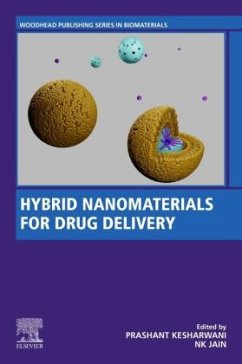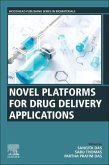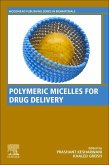Hybrid Nanomaterials for Drug Delivery covers a broad range of hybrid nanomaterials and nanocomposites used in drug delivery systems. The book reviews a variety of hybrid nanomaterials and structures, including polymer-lipid, chitosan-based, protein-inorganic, quantum dot hybrids, and more. The strengths, limitations and regulatory aspects of hybrid drug delivery systems are also discussed, allowing readers to make informed decisions when choosing to utilize hybrid nanomaterials. Users will find this to be an exciting and comprehensive look into this emerging area. It will be of particular interest to academics and researchers working in materials science, engineering, biomedical engineering, nanotechnology and pharmaceutical science.
Multi nanocarrier-based hybrid systems are an emerging concept in the field of drug delivery that allow researchers to avoid some of the challenges faced when administering drugs, such as low bioavailability, development of drug resistance, toxicities, premature drug release, and therapeutic efficacy.
Multi nanocarrier-based hybrid systems are an emerging concept in the field of drug delivery that allow researchers to avoid some of the challenges faced when administering drugs, such as low bioavailability, development of drug resistance, toxicities, premature drug release, and therapeutic efficacy.








